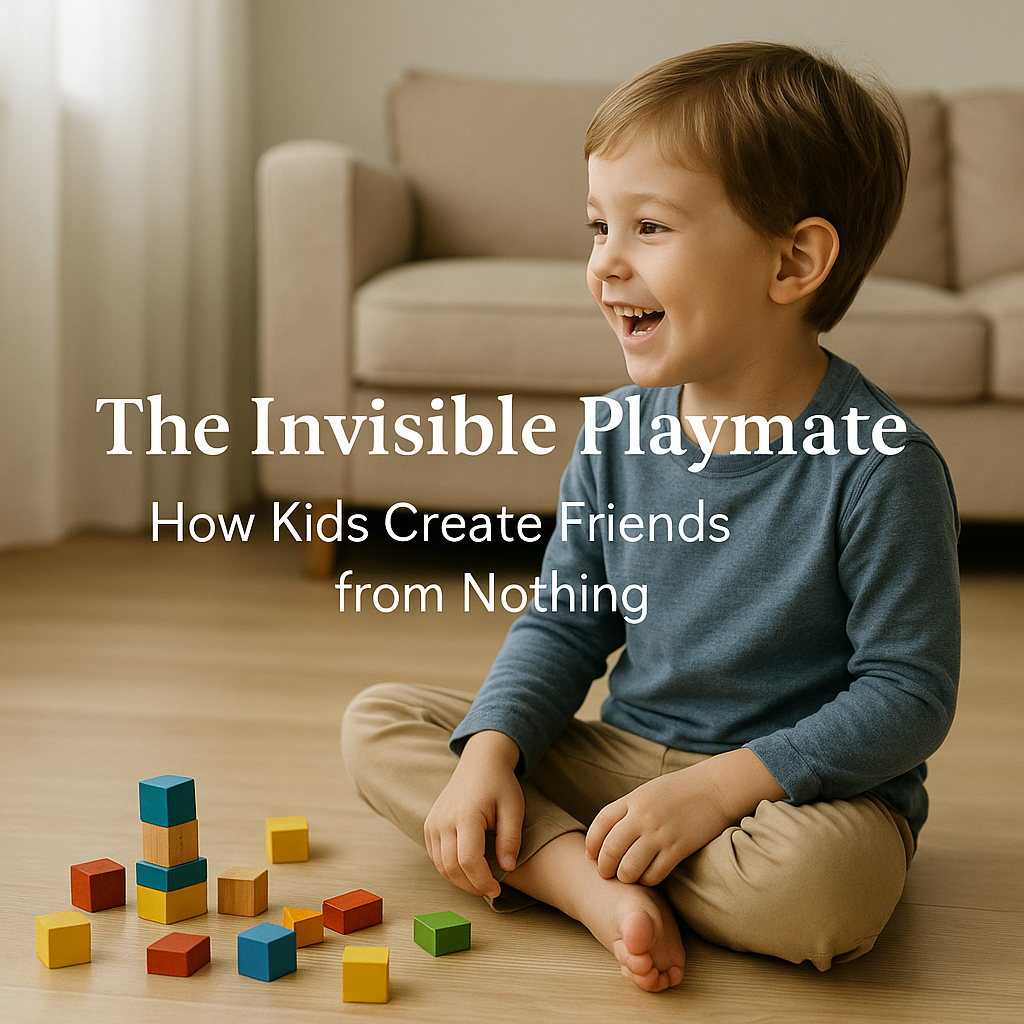
The Invisible Playmate – How Kids Create Friends from Nothing
Share
Introduction
Children have a remarkable ability to bring the unseen to life. One of the most fascinating examples is the creation of imaginary friends. These invisible playmates may seem whimsical, but research shows they play an important role in a child’s cognitive and emotional development. Far from being a sign of loneliness, imaginary friends are evidence of creativity, problem-solving, and emotional resilience.
1. Why Kids Invent Invisible Playmates
Psychologists suggest that imaginary friends emerge as a natural extension of imaginative play.
-
A study in Developmental Psychology (2004) found that nearly 65% of children create an imaginary friend at some point before age 7.
-
Imaginary companions provide comfort, entertainment, and a safe way to explore emotions.
-
They help children practice conversations, negotiate rules, and test out social roles.
2. Cognitive Benefits
Invisible friends stimulate creativity and abstract thinking.
-
A Journal of Child Language (2013) study reported that children with imaginary friends showed more advanced storytelling and language skills.
-
They often demonstrate better problem-solving skills, as imaginary play allows them to “think outside the box.”
3. Emotional and Social Growth
Imaginary friends act as emotional allies.
-
They provide children with someone to confide in, easing stress and anxiety.
-
A study in Child Development (2017) linked imaginary playmates with improved empathy and perspective-taking.
-
Children often use them to cope with transitions like moving homes, starting school, or welcoming a new sibling.
4. What Parents Should Know
Parents sometimes worry that invisible friends are a sign of isolation. In reality, they are a healthy and temporary phase.
-
Encourage the creativity by asking about the playmate’s name or adventures.
-
Avoid dismissing or teasing—it can make the child feel misunderstood.
-
Most children naturally outgrow their imaginary companions by middle childhood.
Conclusion
Invisible playmates are not “nothing”—they are evidence of a child’s rich inner world. By embracing these invisible friends, parents can support their child’s imagination, emotional growth, and early social skills. In the end, these friends may disappear, but the creativity and confidence they inspire last a lifetime.
